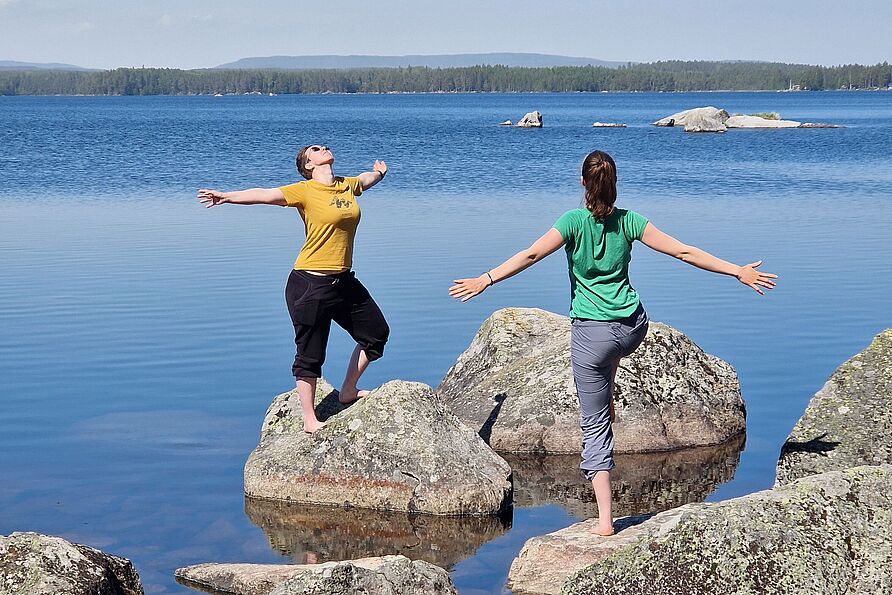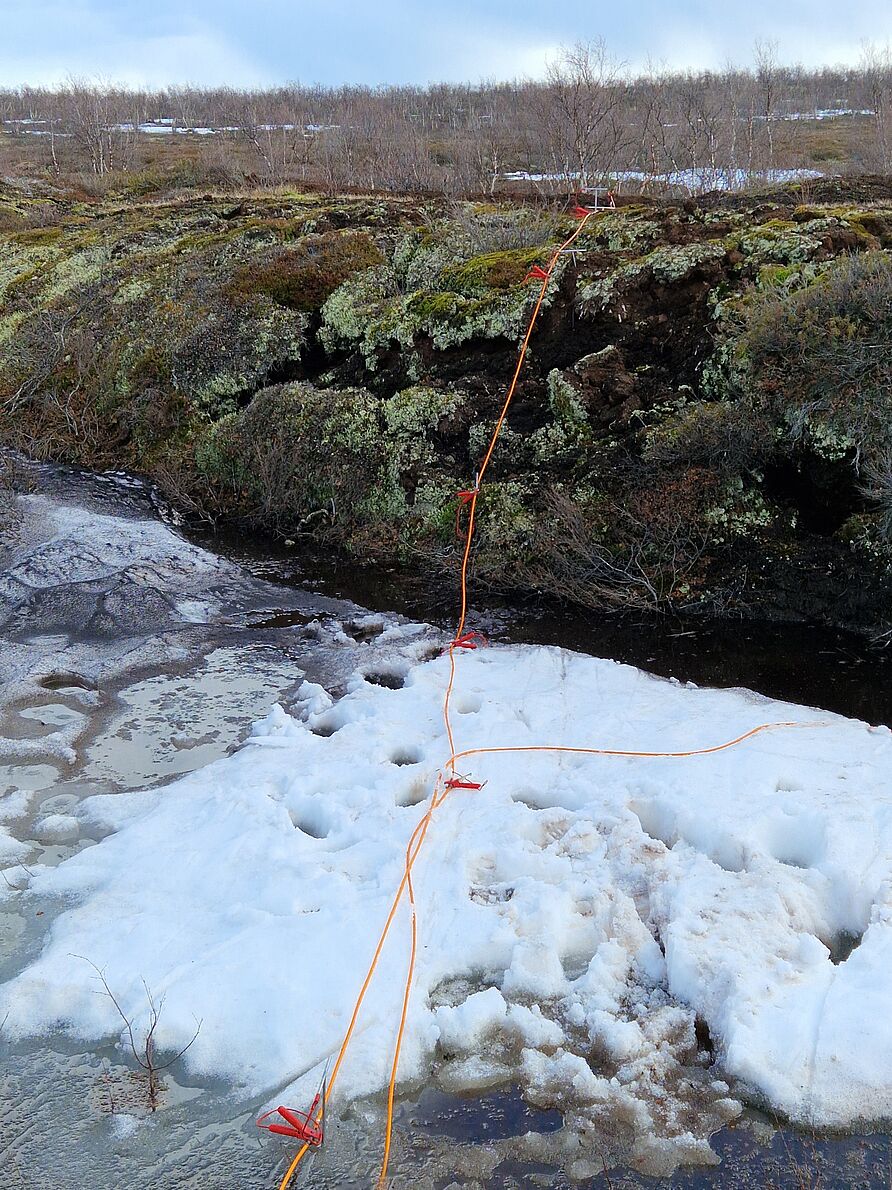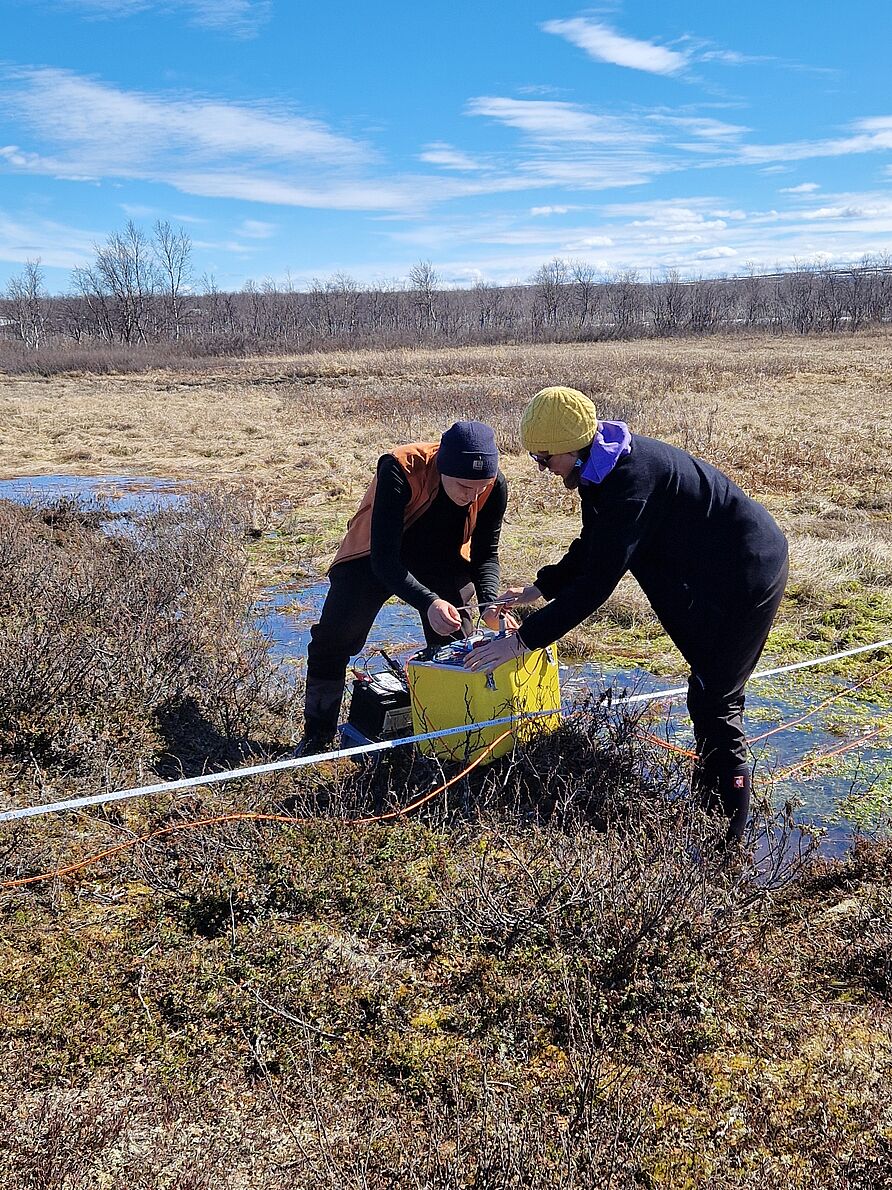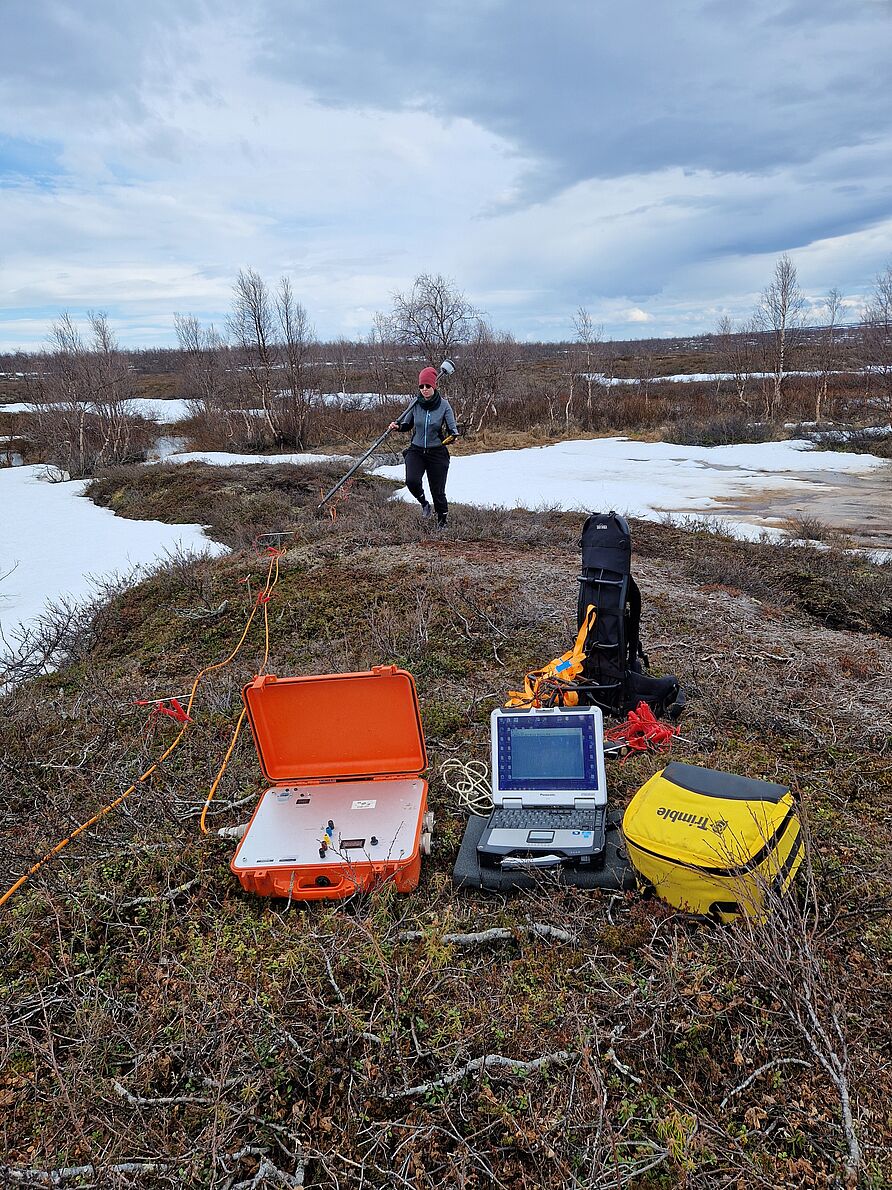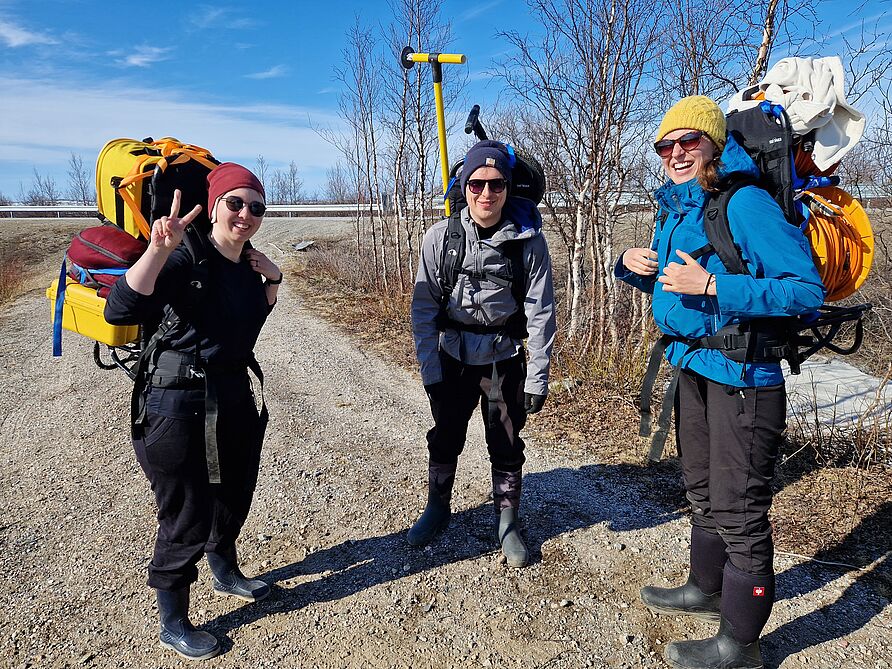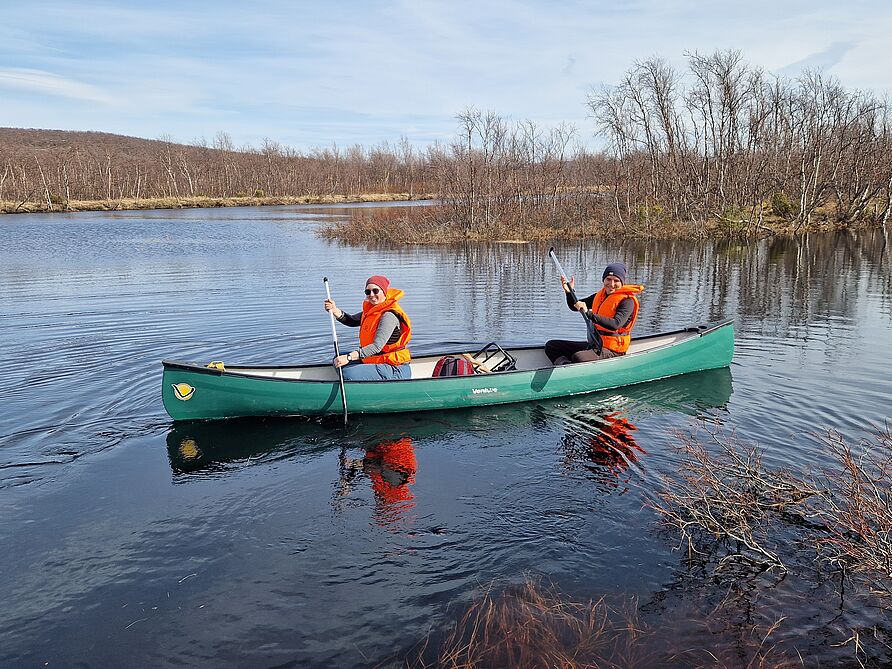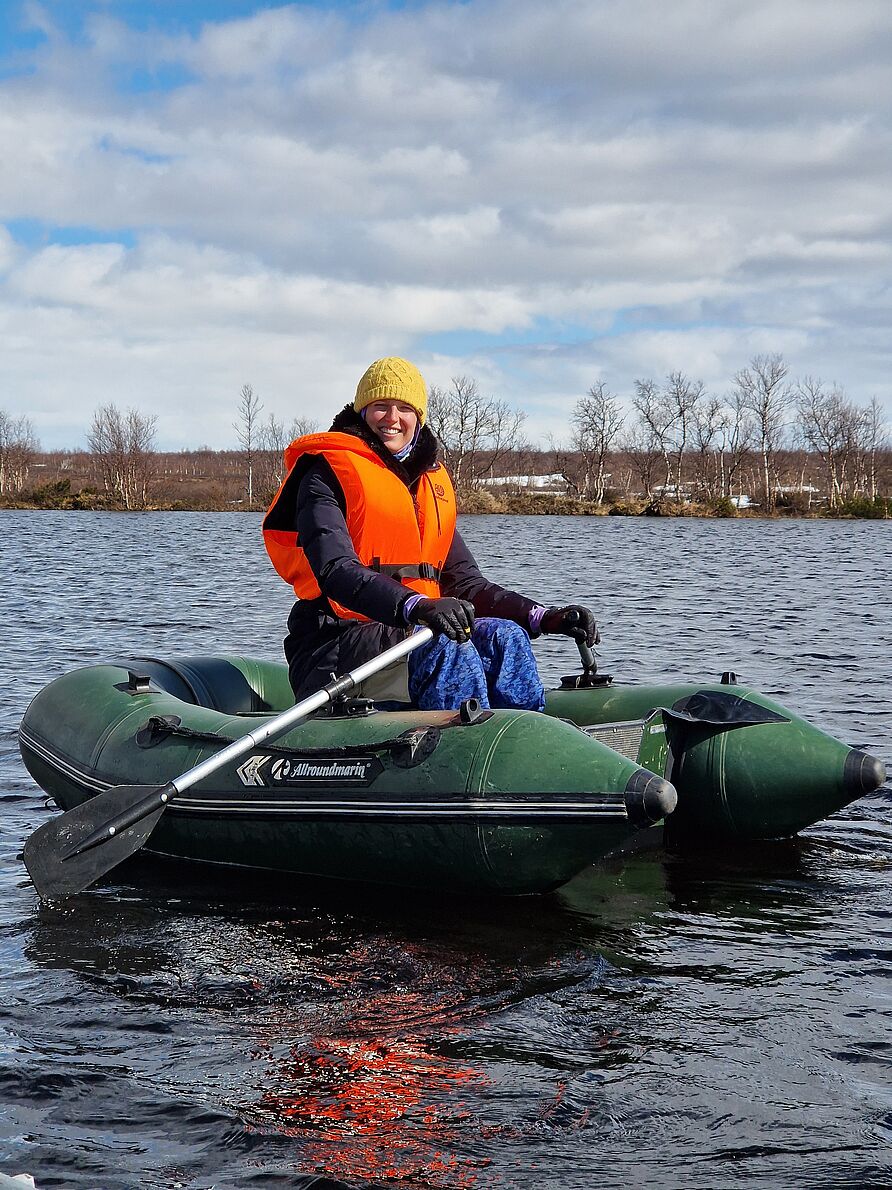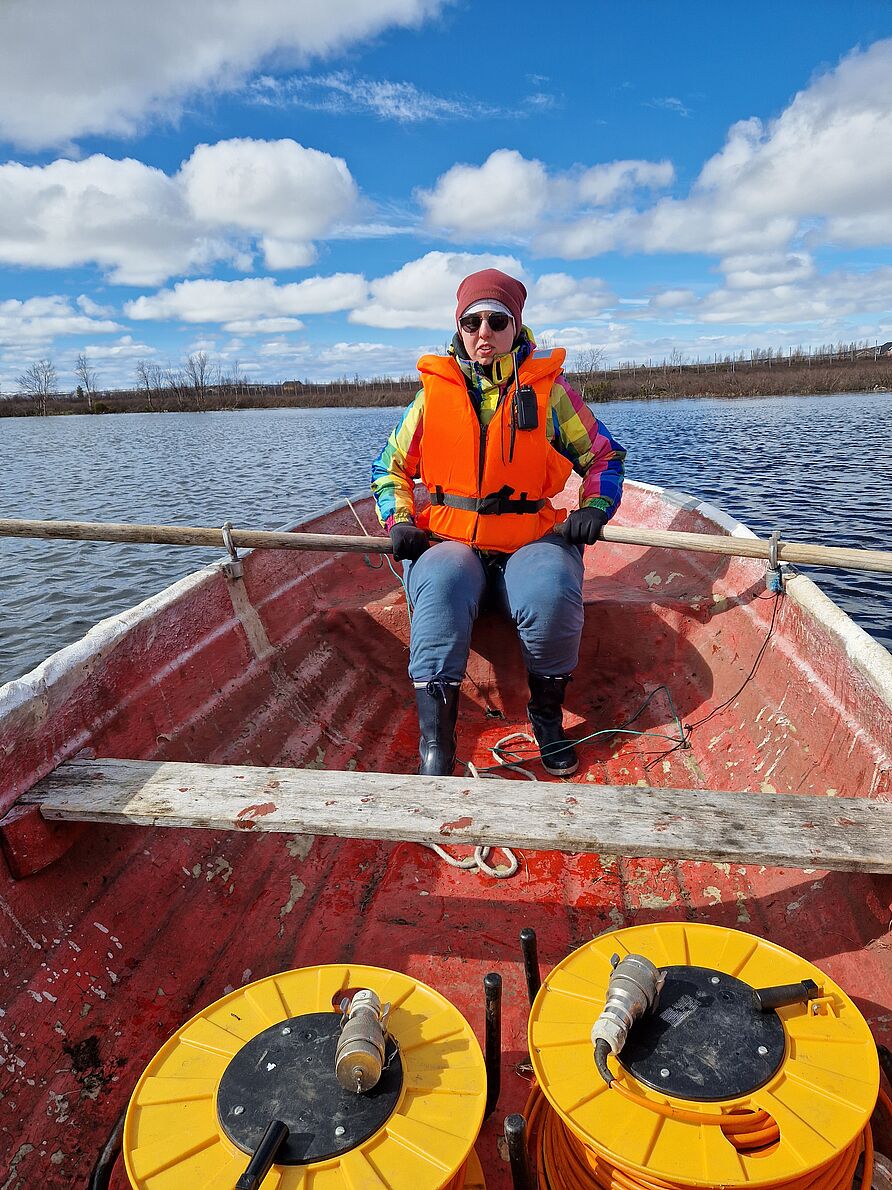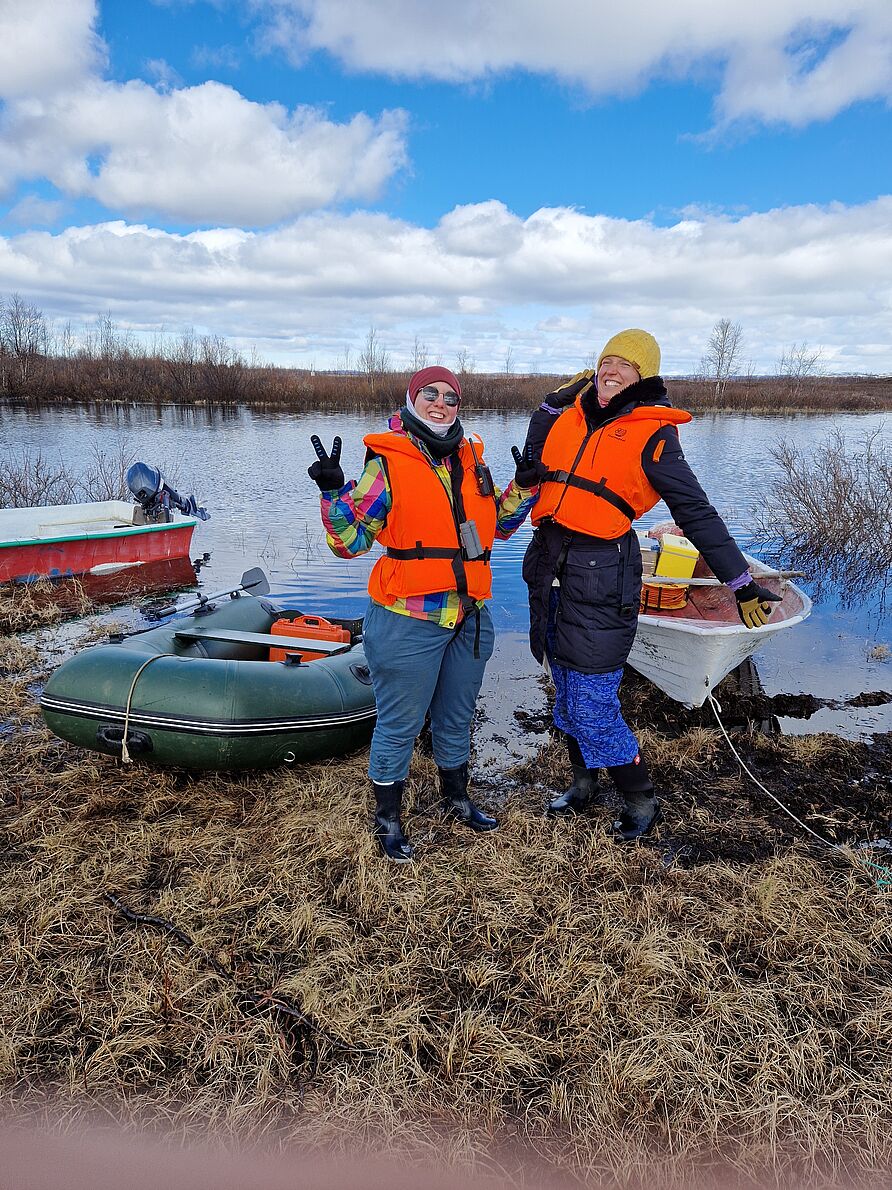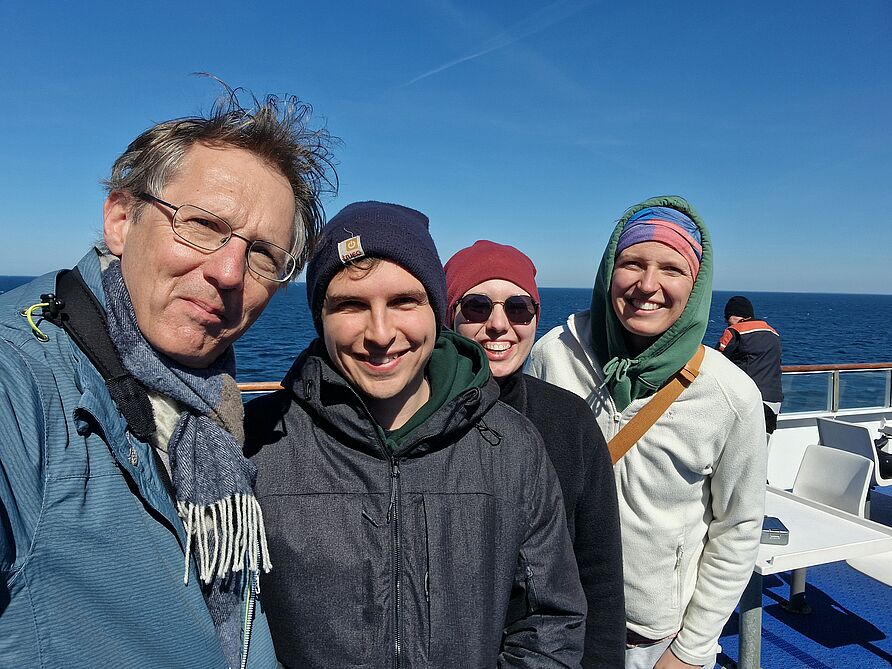...at least after a successful measurement campaign. The picture shows Bachelor students Isabella Burger (Physics) and Annika Pischke (Environmental Sciences) keeping fit with stretching exercises at a rest stop in Sweden during the long return journey from northern Norway. Together with doctoral student Raphael Schulz and Professor Andreas Hördt, they spent over two weeks in Finnmark, north of the Arctic Circle, taking geoelectric measurements on frozen peat bogs.
The "palsas" are a very interesting object of investigation: mounds within a peat bog that presumably have a solid ice core and are slowly disintegrating as a result of climate change. The aim of the measurements was to explore the structure within the palsas and in the surrounding peat plains. Geophysics can be used to look beneath the surface without drilling. Electrical methods and georadar are used to obtain images of the subsurface, which provide important information about the material composition. In particular, the ice content, which can vary from around 20% to a complete ice core, was the aim of the measurements. For this purpose, the Institute of Geophysics and Extraterrestrial Physics developed the High Frequency Induced Polarization method, a globally unique procedure that is specially designed to estimate the ice content. Because of its great potential, its application in the Scandinavian peat bogs is being funded by the DFG.
Hard work was required to collect the data. The heavy equipment had to be carried several hundred meters across the moor or transported in boats lent by the very helpful local population and the Institute of Geoecology. Occasionally things got adventurous, but apart from the odd rubber boot getting soaked and a car getting stuck, which could be freed with our own efforts, there were no incidents worth mentioning.
The data is now waiting to be analyzed. This will take a few more months, but the quality controls on site give us hope that the goals of the expedition can be achieved. Geophysics almost always makes you happy, but when everything goes according to plan - good weather, good mood, good data - it's particularly easy.

